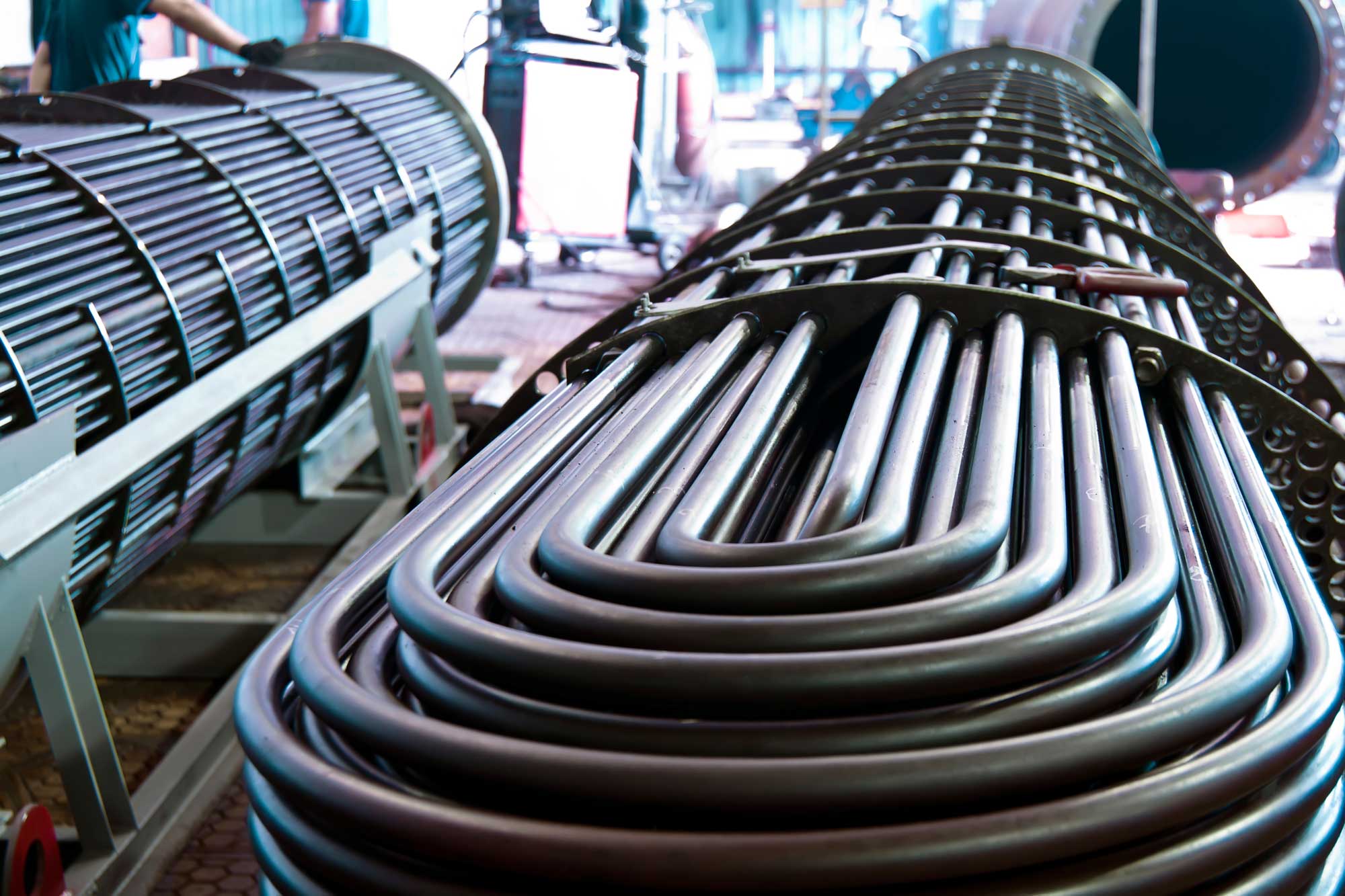Steam Shell & Tube Heat Exchangers
Steam heat exchangers efficiently heat fluids using hot steam. They maintain consistent temperature by condensing steam. Good quality gaskets and pressure relief valves are crucial for safety. Clean steam is essential for optimal performance: dirty water can clog tubes and reduce output. Steam traps manage condensate to ensure efficient heat transfer. Expansion joints absorb pressure changes to prevent damage and extend the exchanger's lifespan.
Superheated and Hot Water Heat Exchangers
Shell and tube pool heaters come in various sizes (small pools to Olympic size) made from corrosion-resistant materials (316L or 316Ti). Their heating power ranges from 15KW to a whopping 1750KW, ensuring a warm pool no matter the size.
Quality Heat Exchangers
Built for durability, swimming pool heaters come in two main materials: 316L stainless steel for regular pools and titanium for saltwater or high-corrosion environments. These shell and tube heat exchangers range in power from a cozy 15kW for small dips to a whopping 1750kW, enough to keep even Olympic-sized pools warm and inviting.
Exhaust Gas Heat Exchangerss
Save fuel and boost power! Exhaust heat exchangers capture waste heat from engines in power plants. This hot water or oil can then be used for heating or other processes.
Double Pipe Heat Exchangers
Food and pharma industries love this heat exchanger for its efficient heat transfer. It's a double-walled wonder with a corrugated inner tube for extra heat exchange. Even if punctured, fluids stay separate! The smooth, polished SS316L tubes meet hygiene standards and prevent bacteria growth. Designed to be flushable with no hidden corners, it's perfect for these sensitive industries.
Evaporator and Condenser
Evaporators turn liquids into high-temp gases, while condensers use process air to condense refrigerant or gas fluids. When designing these, factors like moisture content, gas type, temperature, and specific heat are crucial. Moisture's hidden heat (latent heat) heavily impacts capacity. High pressure can be a safety hazard, so evaporators require proper safety valves and gaskets. Gas flow velocity also needs to be controlled within limits for safe operation.
